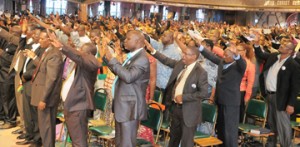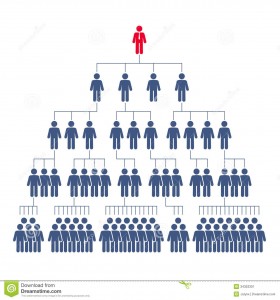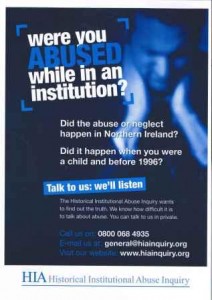As part of a varied ministry over 40+ years, I have for a period of around 15 years accepted the responsibility for the ministry of ‘spiritual deliverance’ in two Anglican dioceses. The Press would no doubt describe the role as that of Exorcist but the reality was far more prosaic. Perhaps the main qualification for doing the job was a readiness to take seriously strange phenomena that occur from time to time in people’s lives. Typically and most commonly there could be a manifestation of physical energy with no obvious cause. This might be described as poltergeist activity. There might be a disturbance of things flying around or lights flashing on and off. Normally I would be talking to a clergyman over the phone advising him how to approach the problem, the attitude to take and the things to say. I have to say that when I went into such a situation myself the phenomena always stopped but I have absolutely no doubt that these frightening episodes were real. Listening carefully, taking the fears seriously and offering prayers would normally calm the situation down. Mostly I was also able to identify a particular individual who was the focus of the strange phenomena. There was thus a duty on my part to ensure that the unconscious energy at work in that individual was somehow ‘earthed’ through careful listening and other forms of pastoral care.
The second typical event was encountering directly, or through advising a clergyman seeking advice, an individual who believed themselves ‘possessed’. The question that I wanted to determine before anything else was where the person had learnt the language of possession. In almost every case they had picked up the vocabulary from attendance at a Christian fellowship which had dealt in the currency of demonic activity and constant attack. Although the language of demonic attack had been normally linked to Anglo-Catholic circles until around 40 years ago, the idea of possession has since around 1980 been normally linked to charismatic and evangelical groups. There was a particular upsurge of interest, even paranoia, about satanic and demonic activity in the late 80s and early 90s. As I described in an earlier blog post, aspects of this paranoia around this were, for once, taken seriously by the UK Government and a report published in 1995. This particular paranoia, even affecting some in the wider society, has largely subsided. (See blog post for December 4th)
In this post I don’t want to repeat what I said in the previous one about devils, but to revisit the horror and cruelty of telling a vulnerable person that they are in thrall to a negative spiritual power of some description. I was always open to the possibility that this was indeed the explanation for their distress but it never, as far as I could tell, turned out to be the case in practice. In the discussions on this blog we have touched on the experience of utter powerlessness whether through poverty, social exclusion or mental illness. When you are at the bottom of the pile, you feel unworthy of anyone’s attention and therefore expect to be ignored and humiliated by everyone. It seems to me that the language of demonic possession is one more weapon in the tool box through which someone can make an individual feel utterly powerless. How can you argue with a person who tells you such a thing?
The task of someone who is entrusted with the ministry of spiritual deliverance when encountering someone who believes they are ‘possessed’ is to recognise that you are dealing with someone who may have been doubly or triply burdened. They first of all carry the stigma of the original problem whether mental or social that has allowed them to be burdened with the possession label. Secondly they have assumed the identity of someone who is powerless to defend themselves against spiritual/demonic incursion. Thirdly they have allowed themselves to trust in a Christian leader who, for reasons of their own, has put them in this state of utter dependency. The relationship with such a person is little short of toxic and one wonders how they can escape it even if they run away physically from the influence of that individual.
This second kind of care entrusted to an Officer for spiritual deliverance might be described as a kind of exorcism but in practice it was an attempt to give people back some of their power after they had been doubly betrayed by the church and one of its leaders. Once was through a doubtful dualistic teaching and secondly by a continuing toxic dependence on a church leader who wanted total dominance over vulnerable members of his (normally his) flock. It will be apparent that I met relatively few devils doing my ‘spiritual deliverance’ work. More frequently I met the casualties of hopelessly inept teaching and examples of ruthless exploitation of the vulnerable.




